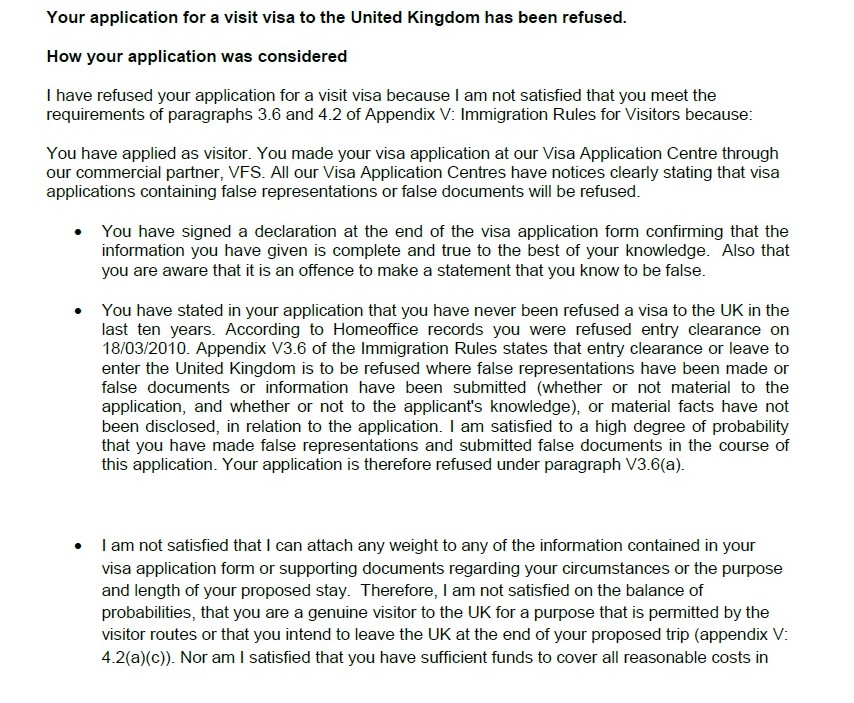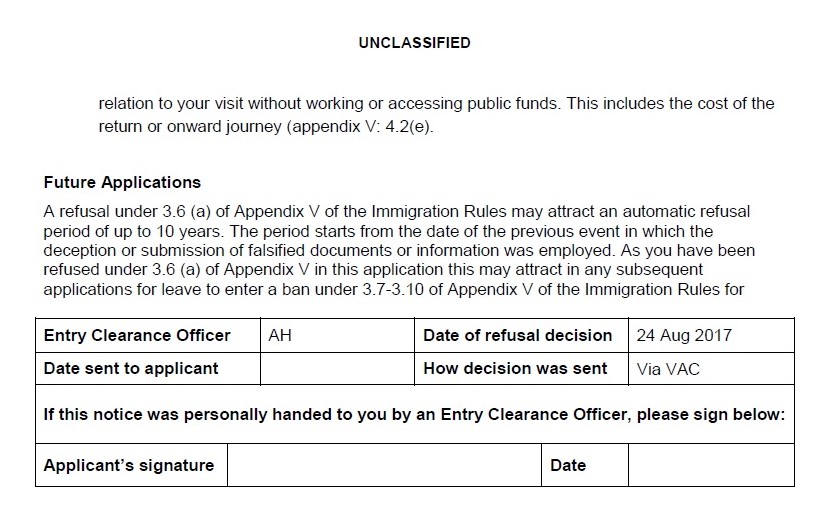You were refused under Appendix V Section 3.6 of the rules. This rule is a restatement of Section 9 Paragraph 320 (7a) of the rules. It was transcribed to Appendix V to make it more user-friendly for visitors, but the content and meaning was preserved.
Deception is a serious offence; the UK has deep issues with deception because it has been used so often in the past. When somebody gets caught for deception they get upset and stay upset for a long time. It is not uncommon to see them revoke a British passport for a naturalised citizen when they find an instance in someone's history (vindictive ex-girlfriend/ex-boyfriend, jealous colleague, a new interface to the DHS, a change in data-sharing agreements, and the list goes on), there appears to be no statute of limitations on it.
I just did not pay proper attention to the boxes I checked.
This is unfortunate. Your credibility has been damaged and you will need to be especially diligent going forward. They hear all kinds of excuses like '...my agent did it...' and '...a simple clerical error...' but these are rarely the case. If you did not pay attention to the application, in the ECO's mind that's an indication that you will not pay attention to the conditions of your visa, and that's a show-stopper (even in the absence of deception).
The refusal notice informs us that you were using the OLD form which asks you to disclose prior refusals in the previous 10 years. Because an applicant must be 18 to make an entry clearance application and your refusal was in 2010, it means you are at least 25 or 26 years old and hence the event would be in your accessible adult memory.
Now, I want to appeal for this ban to be cancelled, what can I do?
You have not been banned and visit visas do not provide an appeal recourse in the first instance.
Reading the notice, the formulae says "...may attract an automatic refusal...". The key word is 'may'. It is a modal verb used in the conditional sense. The formulae for the first refusal having to do with deception does not use absolute language, it cites the relevant rules only and sends a warning shot over your bow. They do it like that because the court has ruled that an ECO's allegation of deception does not meet the civil standard of 'balance of probabilities'. So they wait until the next application to put the onus of proof back on the end-user.
Appeals are not allowed and if you attempt a judicial review on the basis that you did not pay proper attention to the form, it will not even reach the hearing stage. That's a good thing because if it got to the hearing stage, the Home Office could (and likely would) ask the court to recover their costs (i.e., go after you for payment). A UK solicitor will not even take your case under those circumstances anyway.
The standard advice for applicants who have received their first refusal for deception is to avoid making a fresh application, especially if the motivation is to 'clear your name'. Instead, have a qualified UK solicitor represent your next visit visa application. Those lawyers attract a fee. For your case, somewhere between GBP 2.5k to about 5k (but that's a pure GUESS).
You can use the search engine at ILPA to start emailing them with your refusal notice (redacted) and a summary of your personal circumstances. Disclaimer: I am a member there, but do not engage in casework for UK applications. Colin Yeo's article on General grounds for refusal: alleged deception and innocent mistakes gives some insight from a barrister's point of view and worth reading on that basis also (similar disclaimer). Caveat: be mindful that Colin is a barrister (not a solicitor) and is writing mostly about settlement visas and leave-to-remain visas and our domain here is visitor visas and solicitors.
Personal note: Your previous refusal was in 2010. A qualified solicitor would have pointed to the gap of 7 years and then pointed out the dramatic change in personal circumstances since that time. They would have explained how the previous refusal occurred and why those grounds are no longer relevant. They would be providing the ECO with some insight into your new situation in life and all of the other eloquent word smithery that those practitioners are good at... It's a good bet that your application would have succeeded. Unfortunate. Bordering on tragic.
Addendum: Owing to the vigorous and spirited debate in comments (both here and in chat), I can add that anything you read on the net having to do with an APPEAL or a proceeding taking place in the Lower Tribunal or anything taking place in the Upper Tribunal that was appealed from the Lower Tribunal (like Shen) doesn't work because those appeal pathways are not available to the OP.
For the OP's Judicial Review path to escalate the refusal, there are actually TWO (2) distinct immigration offences that took place. (1) deception and (2) non-disclosure of a material fact (two different offences). If the Home Office fails on one they can still use the other one. They will also point out that the remedy for a visitor refusal is a fresh application and if the OP could present a winning case in the Administrative Court and then the Upper Tribunal then he could absolutely make the same case and succeed in a fresh application also. That's why there's another round of applications before a ban is imposed. Finally, remember that the Upper Tribunal needs to approve that a person can lodge a JR in the first instance (you can't just walk in to the Upper Tribunal and plead your case, they have to approve that your case has merit, hence my statement that it would not reach the hearing stage). From a practical viewpoint, just getting in to the UT and without considering their proceedings costs about 5 or 6 times what it costs to instruct the (arguably) most competent solicitor in the UK to sort out a visitor application. Plus the OP is in jeopardy of having an adverse judgement and having to pay for the Home Office costs. Bad scene. Nightmare. Stay off the net peeps, or at least read what you see very carefully.
Addendum #2: One option that hasn't been discussed so far is for the OP to prepare a pre-action protocol and send it to the Home Office. This can be done with the strategy that they might read it and get "spooked" and reverse their decision (Or they might send the OP back a letter that says "Bring it!"). It's free, but your argument must be bullet-proof and well-stated. I had a working relationship with two practitioners in Birmingham who did this almost every time and the odds are about 1%, but they were really good at it to reach those odds. I have never done it and would suggest not trying it, but if you are good and like to play the "Hail Mary" and don't mind getting their backs up, then why not? More info at Pre-Action Protocol for Judicial Review.



I just did not pay proper attention to the boxes I checkedThat is a very shady practice. Why weren't you paying attention ? You can spend money and appeal but I am not sure if it will change anything. This refusal might affect your other visa applications to other countries too, so next time pay attention.